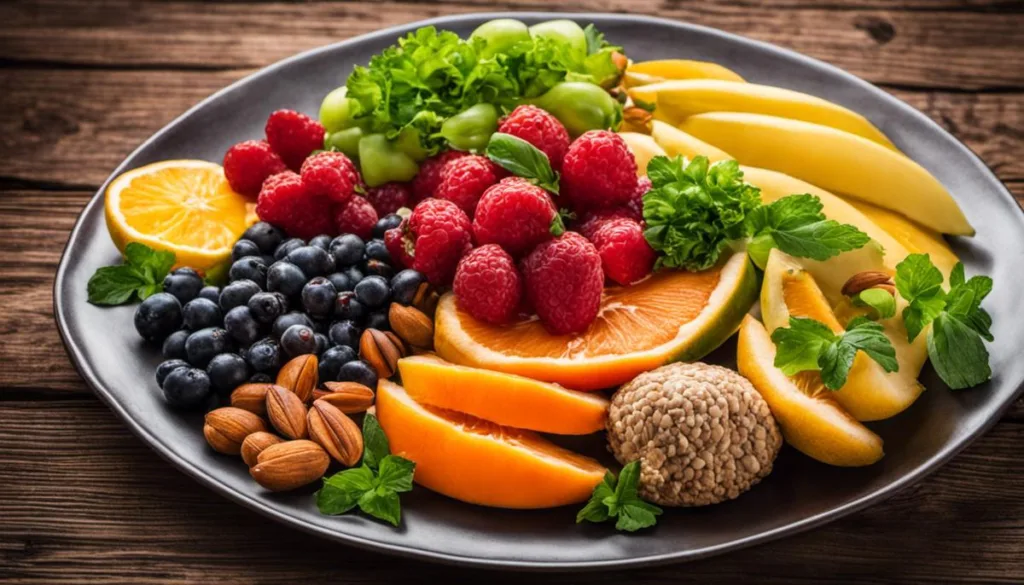Embracing the Mediterranean Diet for Weight Loss
The Mediterranean diet has emerged as one of the healthiest and most sustainable approaches to weight loss in recent years. Unlike restrictive fad diets, this eating pattern celebrates fresh, minimally processed foods that nourish the body and satisfy the taste buds. At the core of the Mediterranean diet are plant-based foods like fruits, vegetables, whole grains, legumes, nuts and, of course, the mighty olive.
Intuitively, it’s easy to see why followers of this diet tend to be slimmer and healthier than the general population. Meals are built around garden-fresh produce, beans, seeds, and healthy fats like olive oil. Fish, poultry and eggs make moderate appearances while red meat is enjoyed sparingly. Perhaps the best part? No foods are strictly off limits, meaning cravings can be satisfied in moderation while still supporting weight loss goals.
When it comes to elevating weight loss success within the Mediterranean diet, the humble olive reigns supreme. These flavorful fruits are nutritional powerhouses packed with monounsaturated fatty acids, antioxidants, fiber and other essential nutrients. As we will explore in this blog, incorporating olives into your daily meals can enhance feelings of satiety, reduce overall calorie intake, support heart health and give your weight loss efforts an extra boost. Read on to learn how to embrace the Mediterranean lifestyle and tap into the weight loss benefits of olives.

The Mediterranean Diet: A Nutrient-Rich Path to Weight Loss
The Mediterranean region has long been associated with dazzling coastlines, sunshine-drenched landscapes and laid-back, leisurely meals shared amongst family and friends. This relaxed approach to eating minimizes stress while focusing meals around garden-fresh staples like olive oil, produce, nuts, beans and seafood. At its core, the Mediterranean diet emphasizes:
- Abundant plant foods including fruits, vegetables, whole grains, legumes, herbs, spices, nuts and seeds
- Olive oil as the primary source of dietary fat
- Dairy in moderation, primarily yogurt and cheese
- Eggs, poultry, fish and seafood consumed weekly
- Lean red meat consumed only occasionally
- Baked goods, sweets and wine for special occasions
- Herbs and spices to flavor foods instead of salt
Followers of the Mediterranean diet enjoy a diverse array of minimally processed, nutrient-rich foods. Meals are built around plant proteins like beans, lentils and chickpeas paired with farm-fresh salads, whole grain sides and veggie-packed stews or casseroles. Seafood, eggs or poultry make moderate appearances a few times per week while red meat is reserved for special occasions. Don’t forget a drizzle of tasty olive oil and a glass of red wine to toast the Little pleasures in life.
This Mediterranean-style eating pattern provides a healthy balance of protein, fiber, antioxidants and essential fatty acids. The abundance of fiber and plant-based foods boosts feelings of fullness and satisfaction. Protein-rich foods provide satiety and sustenance while healthy fats contribute heart-protective benefits. The result is an eating plan that curbs cravings, manages hunger and supports sustainable weight loss. Best of all, the Mediterranean diet doesn’t require meticulous macro-tracking or strict limitations. Moderation and mindfulness around whole, nourishing foods is the focus.

Olives: Nature’s Weight Loss Gems
Among the rainbow of plant foods celebrated in the Mediterranean diet, olives stand out for their concentration of nutritional benefits. These tasty fruits grow abundantly across Mediterranean countries, lending a distinctive flair to regional dishes. Just a handful of olives offer a powerhouse dose of monounsaturated fatty acids, fiber, iron, copper, vitamin E and protective plant compounds.
The monounsaturated fatty acids in olives have powerful anti-inflammatory effects that support cardiovascular health. These beneficial fats also help regulate cholesterol levels when consumed in place of dangerous trans fats or saturated fat. Fiber is another valuable nutrient provided by olives. Just 5-10 olives offer 1-2 grams of dietary fiber that supports satiety, digestive health and heart health.
Olives are also rich sources of antioxidant polyphenols that fight free radical damage and inflammation. Two of these compounds, hydroxytyrosol and oleuropein, are only found in olives. They exhibit potent anti-inflammatory, antioxidant and antimicrobial properties that protect cells from oxidative stress.
Considering their stellar nutritional profile, it’s no wonder the tasty olive is a staple of the famously healthy Mediterranean diet. Olives provide a nutritious boost to salads, grain bowls, pizzas, pastas, sandwiches, appetizers and beyond. Anywhere olives are added, you’ll benefit from a dose of hunger-taming monounsaturated fats, filling fiber, essential vitamins and protective polyphenols. Read on to discover how these nutritional gems can elevate your weight loss success.
Satiety and Weight Loss: The Olive Connection
Of the many philosophies within the Mediterranean diet, a recurring theme is simplicity and satiation. Meals are crafted around fresh, seasonal ingredients that provide a sense of satisfaction and fullness. Hunger is kept at bay while avoiding heavily processed convenience foods. This mindset lends itself to reduced calorie consumption without the need for strict portion control. When the most nutritious foods are also the most delicious and fulfilling, weight loss comes easy.
Here’s where olives work their weight loss magic. These flavorful fruits are rich in monounsaturated fatty acids that target belly fat. Research shows diets higher in monounsaturated fats specifically reduces dangerous visceral fat that surrounds internal organs and drives disease risk. Beyond burning belly fat, the monounsaturated fatty acids, fiber and polyphenols in olives boost satiety. This delays hunger, regulates appetite and reduces subsequent calorie intake to support weight loss.
Olives also make excellent substitutes for unhealthier snacking choices. Craving something salty? A handful of olives can replace greasy chips or sugary candy. Looking for some crunch? Olives pack a satisfying pop of texture and flavor. Pair them with nuts, seeds and fresh veggies for a fiber-filled snack platter. Olives can also be blended into tapenades and dips to enjoy with whole grain crackers and bread. Taking advantage of olives’ versatility and satiating powers is key to curbing cravings between meals.
When meal planning, olives add a flavor and nutrition boost to everything from pizza to salad, sandwiches to grain bowls. Try filling breakfast wraps with egg, avocado and olives for a satiating start to your day. Skewer olives, mozzarella, basil and tomatoes for a perfect appetizer or afternoon snack. The options are endless for incorporating olives into your daily diet to drive satisfaction and support your weight loss goals.

The Role of Monounsaturated Fats
As discussed, olives’ concentration of monounsaturated fatty acids provides several weight loss benefits. But what exactly are these monounsaturated fats, and why are they so beneficial? Let’s take a closer look.
Monounsaturated fatty acids, or MUFAs, are a type of healthy unsaturated fat found in plant-based foods and oils. While the Mediterranean diet includes a variety of fats, MUFAs make up the majority of the fat content. Foods rich in MUFAs include olives, olive oil, avocados, nuts and seeds. Studies consistently link higher MUFA intake to reduced heart disease, diabetes, cancer and obesity risk.
Unlike dangerous saturated and trans fats, MUFAs provide several cardiovascular benefits including:
- Lowering LDL (bad) cholesterol and raising HDL (good) cholesterol
- Decreasing blood pressure and inflammation
- Improving blood sugar control
- Targeting belly fat burning
By supporting blood sugar regulation, MUFAs also help minimize fat storage and fluctuations in energy and appetite. These protective fatty acids support weight management by controlling hunger, reducing fat deposition around the abdomen and optimizing fat burning.
The monounsaturated fats in olives, olive oil and other Mediterranean diet staples offer the ideal nutrient ratio for lifelong health. Be sure to incorporate MUFA-rich foods like olives daily as part of balanced, home-cooked meals and snacks. With their concentration of monounsaturated fats, olives are guaranteed to take your weight loss goals to the next level.
Olive Oil vs. Whole Olives: Which is Better for Weight Loss?
One common question around olives is whether to consume them whole or as olive oil for optimal weight loss benefits. The answer? Both offer unique advantages.
Extra virgin olive oil provides all the benefits of olives in a versatile, antioxidant-rich fat that can be drizzled over salads, roasted veggies, grilled fish and more. Olive oil contains the same monounsaturated fats, polyphenols and nutrients that make whole olives a weight loss superfood. It simply offers these nutrients in a concentrated oil form. Using olive oil for sautéing, salad dressings and marinades eliminates less healthy cooking fats while benefiting from olive’s MUFAs.
Whole olives complement olive oil intake as an easy way to add extra fiber, texture and flavor. Snacking on olives boosts satiety between meals which naturally decreases calorie consumption. Pair olives with nuts, seeds and veggies for satisfying, nutrition-packed snacks. Olives can also be chopped up in grains bowls, tacos, sandwiches and salads to provide a flavor and nutrition boost.
For the most benefits, incorporate both olive oil and whole olives into a Mediterranean-style diet. Use olive oil daily in cooking, drizzled over finished meals and for snacks. Keep plenty of whole olives stocked at home and at your desk for an easy way to increase antioxidant intake while controlling hunger and cravings. Together, olive oil and whole olives are surefire tools for boosting Mediterranean diet success.
Recipes to Boost Weight Loss with Olives
From pizzas to salads, pastas to appetizers, olives shine in endless Mediterranean-inspired dishes. Here are a few delicious ways to start incorporating olives into daily meals for an extra dose of satiating monounsaturated fats:
Overnight Oats with Olives and Feta
This savory take on overnight oats packs 20 grams of protein and 7 grams of fiber to curb cravings through the A.M. Simply mix 1⁄2 cup oats with 1⁄2 cup milk of choice and stir in olives, feta, tomato and herbs. Chill overnight and enjoy!
Tuna and Olive Lettuce Cups
Stuff crispy lettuce cups with Mediterranean tuna salad made with olive oil mayo, tuna, olives, artichokes, lemon juice and Dijon mustard. Sprinkle with toasted pine nuts or sunflower seeds.
Pesto Pasta Salad with Olives and Burrata
Toss hot pasta with pesto sauce, olives, tomatoes and baby spinach. Top with creamy burrata cheese and a drizzle of balsamic glaze for an easy yet elegant salad.
Mediterranean Chickpea Quinoa Bowls
Build hearty grain bowls with quinoa, chickpeas, roasted veggies, olive tapenade and crumbled feta for a vegetarian dinner. Mix and match your favorite Mediterranean toppings.
Greek Stuffed Peppers with Olives
Fill bell peppers halves with a savory mixture of brown rice, olives, feta, lemon zest, olive oil and Italian seasoning. Bake until tender for a delicious vegetarian entree.
The possibilities are endless when cooking with olives. Allow your creativity to run wild while building meals around the fresh flavors and textures of the Mediterranean. Embracing this diet and lifestyle is truly effortless and enjoyable when olives and olive oil elevate each dish.

Embrace the Mediterranean Lifestyle with Olives
The Mediterranean region has long enjoyed lower rates of chronic diseases and impressive longevity compared to other parts of the world. Much of this success stems from traditional eating patterns founded on unprocessed staples like olive oil, olives, fruits, vegetables, nuts and legumes. By embracing a Mediterranean diet rich in plants and healthy fats, sustainable weight loss follows as an enjoyable side effect.
If the Mediterranean lifestyle appears too intimidating, simply start by adding olives to your daily routine. Keep a stock of olives, olive tapenade and fresh veggie snacks at your desk, in your car and at home. Use olive oil for cooking and dressings. Sprinkle olives into wraps, salads, pizzas and grain bowls for an extra dose of flavor and nutrition. Soon, you’ll be craving these satisfying Mediterranean flavors while reaching your health and weight loss goals with ease.
The path to lifelong wellness isn’t through deprivation and restriction. Nourish your body with time-honored Mediterranean staples like fresh olive oil, olives, seasonal produce and seafood. Enjoy meals with friends and family, and never deprive yourself of life’s simple pleasures. This balanced approach allows you to savor life to the fullest while supporting sustainable weight management.
Thank you for reading our blog on the benefits of olives for weight loss within the Mediterranean diet. For more expert advice on food, nutrition, health, wellness and weight loss, subscribe to our free newsletter. Stay tuned for upcoming articles that will empower you to make informed choices for a healthier lifestyle.
Thank you for reading this post, don't forget to subscribe to our free newsletter
!

